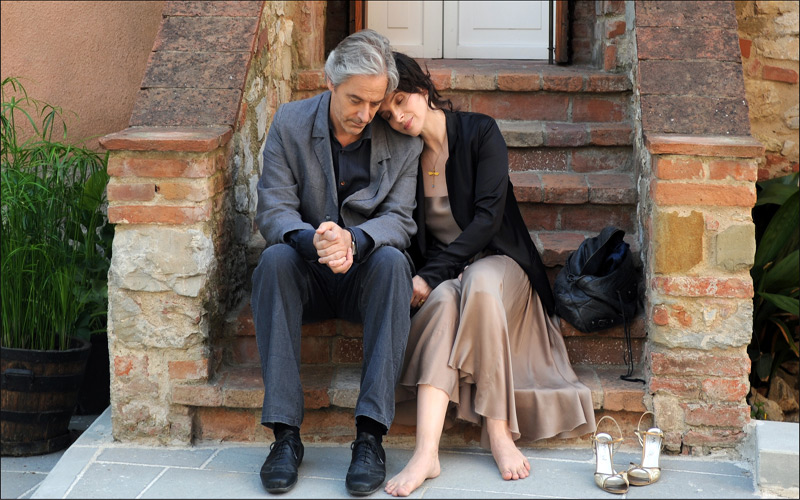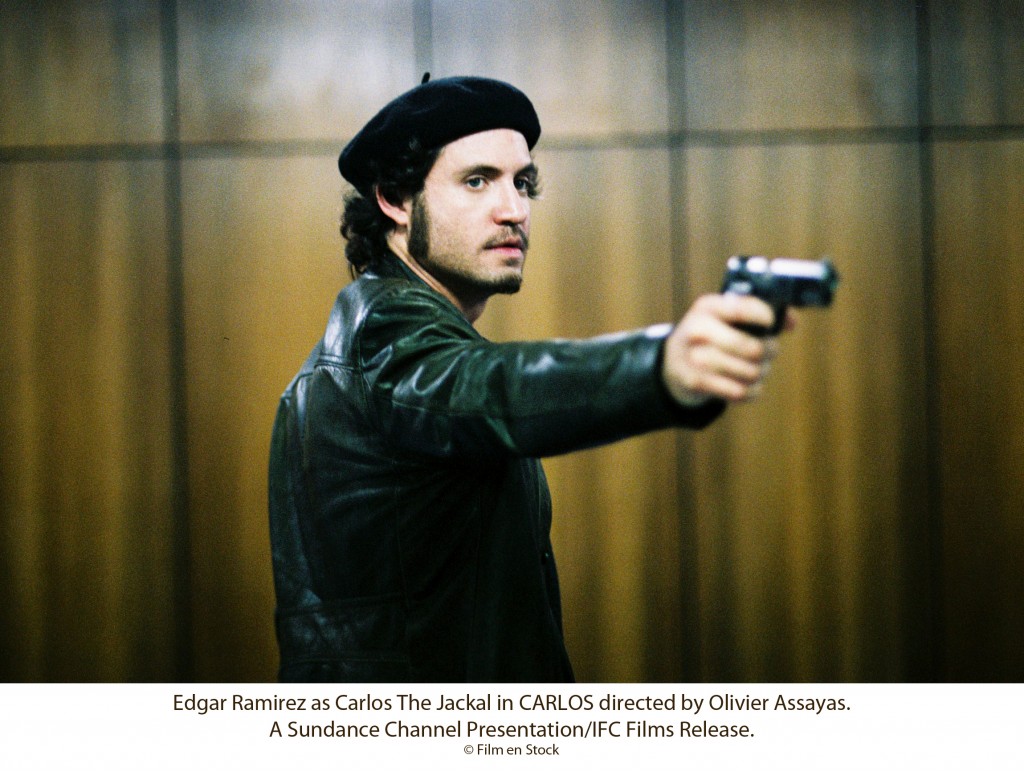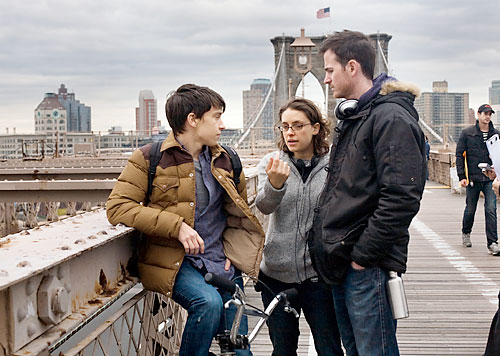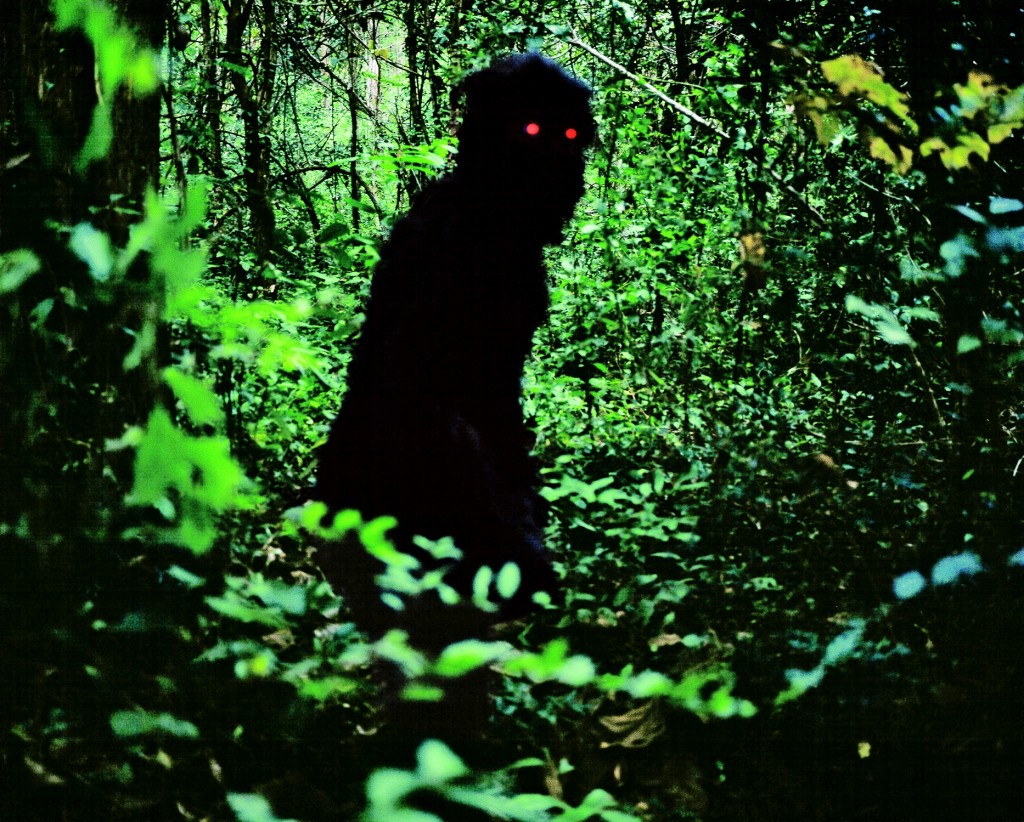Posted by Ethan under Film Festivals, Film Review, NYC Film Critic
Comments Off on NYFF ’10: Certified Copy

Directed by Abbas Kiarostami
****
It isn’t often that I immediately want to watch a film again after the credits roll, but that’s how I felt at the conclusion of Iranian director Abbas Kiarostami’s Certified Copy. This tricky hall-of-mirrors story revolves around a man and a woman (William Shimell and Juliette Binoche) that spend one long day in each other’s company wandering around the Tuscan countryside. He’s a scholar that specializes in art reproductions, she’s the owner of a small antiques shop and they have supposedly never met before. Over the course of the day though, their relationship undergoes pronounced shifts and, by the end, they have taken on the appearance and attitude of an actual married couple. But are they? Or are they simply a reproduction of the other couples they have encountered during their excursion? In the end, the movie isn’t concerned with providing a definitive answer, which is as it should be. The joy of the film emerges from observing the subtle way the nature of their relationship changes over time. Shimell and Binoche—who deservedly won the Best Actress prize at Cannes—deliver marvelous performances that demonstrate exceptional range, putting them (and us) through the emotional wringer. Certified Copy is the kind of movie that can be watched again and again because each time you’ll undoubtedly discover something—be it a glance, a bit of body language or a line of dialogue—that makes it into a new film each time.





